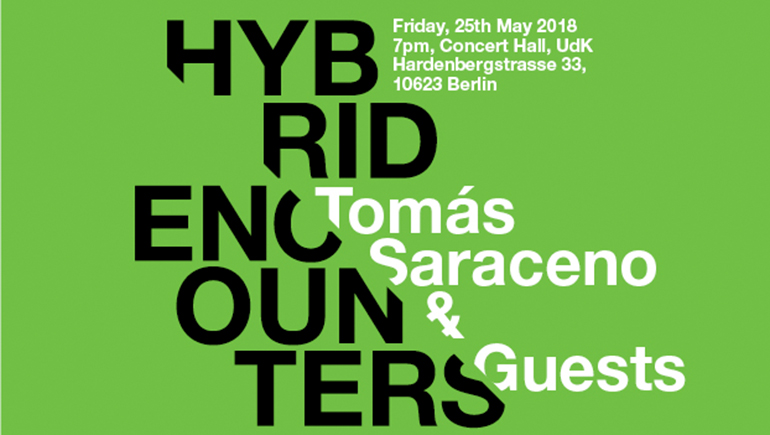On May 25, at 7 pm, the "Hybrid Encounters - Art Meets Science" will enter the second round. Under the triad of "Art, Biology and Algorithms", the artist Tomás Saraceno has invited guests from different disciplines to talk about what we can learn by analizing spider colonies. The discussion is supplemented by the "Arachnid Jam Session", a performance by the musician David Rothenberg with a spider.
Another guest of Saraceno is Ingo Rechenberg, who regularly explores the desert of Erg Chebbi on the outskirts of the Sahara in his research trips. It is there, that he in 2006 discovered a spider species that moves forward by rolling. Inspired by this spider fittingly called Cebrennus Rechenbergi, he is currently constructing a robot that imitates her movement strategy.
Ingo Rechenberg conceives bionics as the study and use of results of biological evolution and consequently the evolutionary strategy as a subset of bionics.
Rechenberg was born in Berlin in 1934 and initially found his way into science as an avid model pilot, in a playful way. He is considered a pioneer in the fields of the Evolutionary Algorithm and the Artificial Evolution. During his studies at the TU Berlin and the Engineering Laboratory in Cambridge, he coined a very influential set of optimization methods known as Evolutionary Strategies, between 1960 and 1970.
Since 1972 Ingo Rechenberg holds the Chair of Bionics and Evolution Technology at the TU Berlin. His first book "Evolutionsstrategie – Optimierung technischer Systeme nach Prinzipien der biologischen Evolution" was published the following year.
Among noumerous awards, he was honored in 1995 with the Lifetime Achievement Award of the Evolutionary Programming Society and in 2002 with the Evolutionary Computation Pioneer Award of the IEEE Neural Networks Society.
At the center of the evening’s discussion will be the question what consequences computer science holds for biology and whether an interspecies communication is conceivable. We are therefore very pleased that Ingo Rechenberg will contribute his a thoughts on this problem and to the evening.
-Rosa

